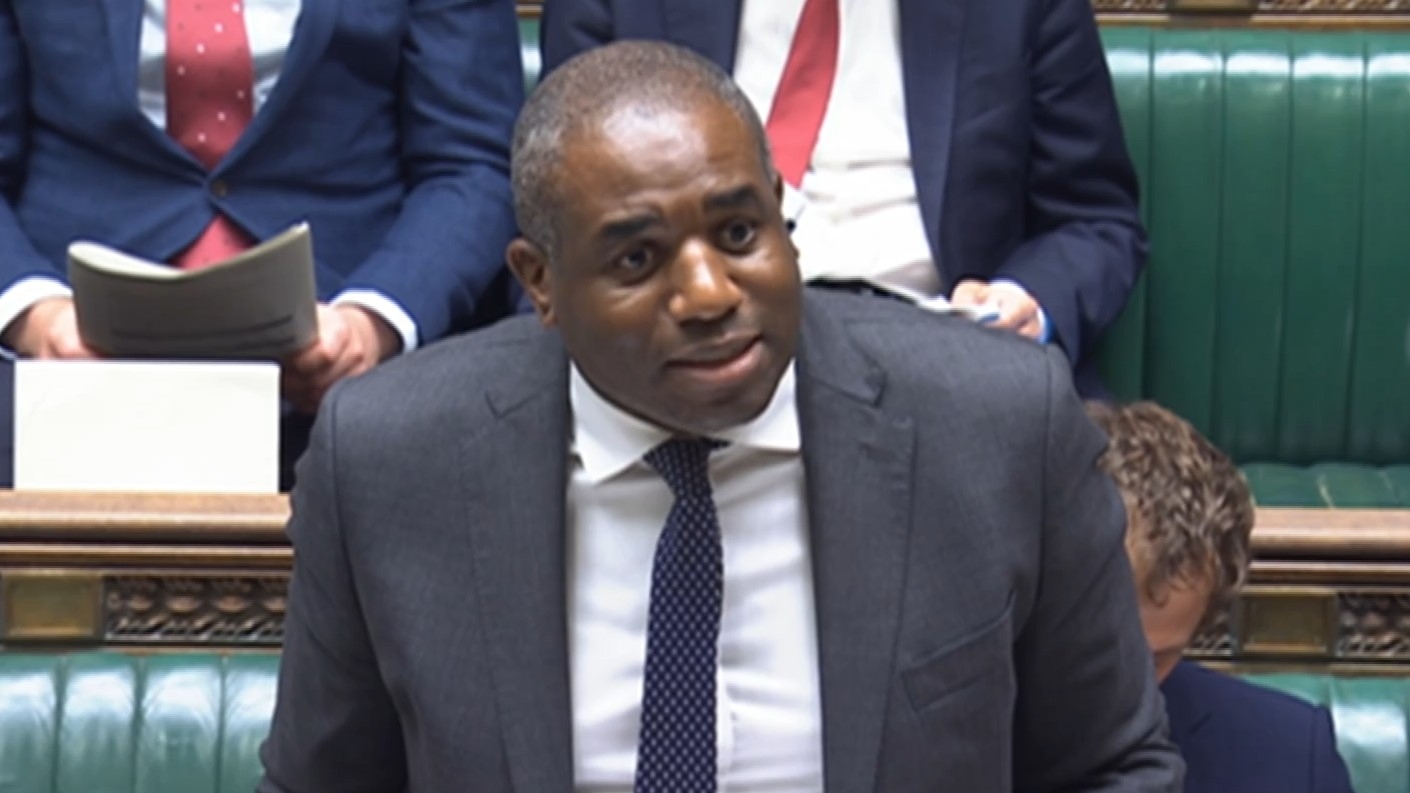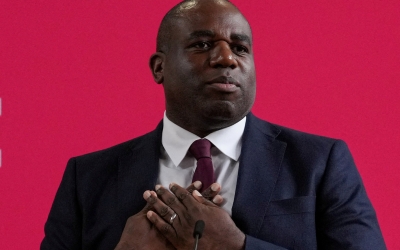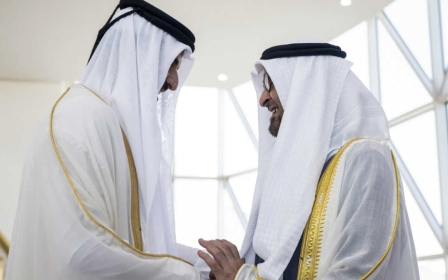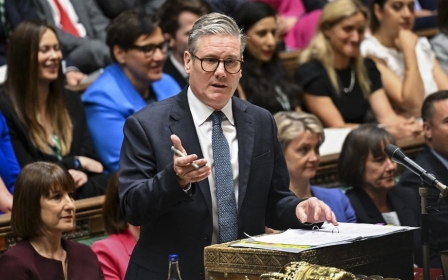UK government offers no timetable for decision on arms sales to Israel
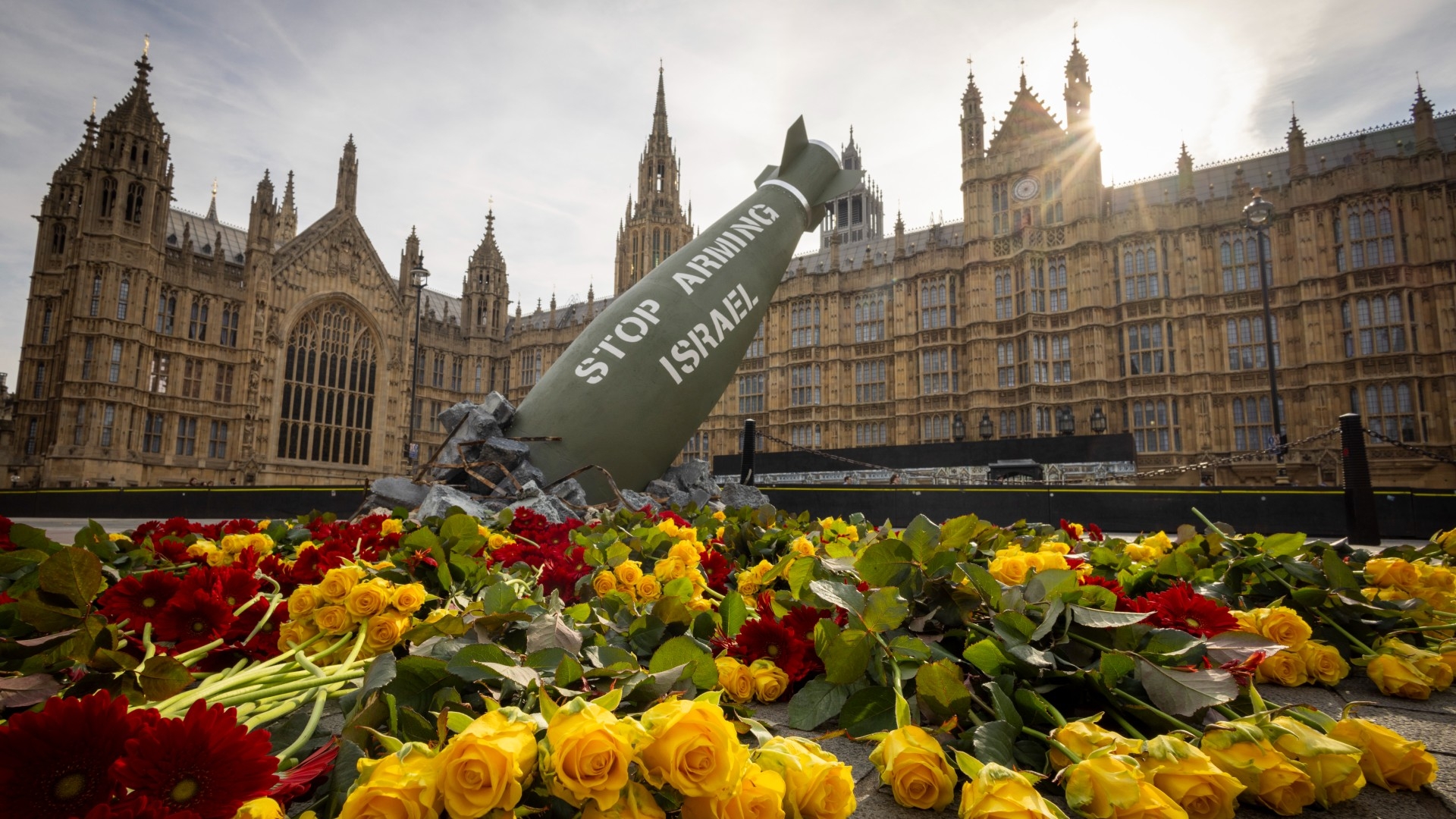
The UK government offered no timetable on Tuesday for its anticipated decision over whether to continue licensing arms exports to Israel as parliament prepared to break for its summer recess.
Addressing MPs, Foreign Secretary David Lammy reiterated that he had commissioned new legal advice into Israel's compliance with international humanitarian law in its war on Gaza on his first day in office following Labour's victory in the general election on 4 July.
But he did not specify when he would announce a decision, nor if he would make the advice he received public as he had demanded of the previous government.
"This is an ongoing process. I pledge to update the house as soon as I can on this very, very serious matter," Lammy told MPs.
Sources told Middle East Eye that the new government planned to introduce restrictions to arms sales this week.
New MEE newsletter: Jerusalem Dispatch
Sign up to get the latest insights and analysis on Israel-Palestine, alongside Turkey Unpacked and other MEE newsletters
But a Times report on Tuesday suggested that the announcement was delayed as the government reviews evidence to identify which UK-made weapons may have been used in suspected war crimes.
Lammy told MPs earlier this month that given the attacks by the Houthis, Hezbollah and Hamas on Israel, it would “not be right to have a blanket ban between our countries”.
He suggested he was looking at offensive weapons Israel could use in Gaza as part of the review he had ordered.
'It is critical that the UK government immediately suspend both existing and new licences for all arms sales, whether direct to Israel or via third parties'
- Halima Begum, Oxfam GB chief executive
Labour MP Afzal Khan told MEE in parliament on Tuesday that he is "confident" the UK will restrict arms sales to Israel.
"It's been done before," he said in reference to five prime ministers who have previously imposed restrictions.
"We're only three weeks into the Labour government and have already seen lots of positive developments which we had never seen under the Conservatives. We need to keep it up and respect international law.
"We've had the ICJ report and need to give the government time to go through it," said Khan, in reference to the International Court of Justice advisory opinion released earlier this month that called on states to cease assisting Israel's occupation of Palestinian territories, including Gaza.
Campaigners and MPs have questioned how the government will distinguish between offensive and defensive weaponry.
"Given that Israel defines its entire campaign as defensive, how do they propose to tell us, at the end of their review, just how many of the 40,000 civilians who have been killed were killed with defensive weapons," Scottish National Party MP Brendan O'Hara asked.
Minister for Development Anneliese Dodds responded: "This is a legal process. It is one which has to be complied with. This government is absolutely clear that we must act with integrity and ensure that we are following all of those legal procedures."
Hannah Bond, co-CEO of charity ActionAid UK, said: “The UK Government has an unequivocal obligation to immediately halt all arms licenses to the Israeli government – yet it has dithered once again, whilst tens of thousands of Palestinians in Gaza are barely surviving in some of the worst humanitarian conditions ever witnessed.
"As the government knows, the UK remains at serious risk of being complicit in potential war crimes if the government does not commit to banning all arms licenses."
A ban on arms exports to Israel would have been the third major British policy change towards Israel's offensive in Gaza since the new government was elected.
Earlier this month, Lammy announced that British funding had been restored to the UN agency for Palestinian refugees (Unrwa).
Last week, the government withdrew its objections to the International Criminal Court's (ICC) arrest warrants for senior Israeli leaders.
A new Oxfam analysis has estimated that nearly 7,000 people across Gaza are likely to be killed or injured during the 33-day recess if Israel's military offensive continues at it current level.
Israel's offensive on Gaza has killed at least 39,364 people in Gaza since the Hamas-led attacks on 7 October killed more than 1,100 in Israel.
Halima Begum, Oxfam GB chief executive, said: “The government is fully aware of the risk that arms exported from the UK are likely being used to commit war crimes in Gaza.
"It is critical that the UK government immediately suspend both existing and new licences for all arms sales, whether direct to Israel or via third parties," she said.
"Without such concrete action, glaring loopholes for continued arms transfers will remain. Minor restrictions will make little meaningful difference in this appalling crisis.”
'The longer this decision takes, the more damage the government is doing to its reputation'
- Yasmine Ahmed, Human Rights Watch
Yasmine Ahmed, UK director of Human Rights Watch, said suspending licensing of arms and military equipment was "both morally and legally the right thing to do".
"Under both domestic and international law, the UK is obliged to suspend licensing if there is a clear risk that arms or equipment might be used to commit or facilitate a serious violation of humanitarian law," she said.
"Given the UK continues to provide parts for F35 fighter jets that have unleashed untold death and misery on the people of Gaza, that risk really isn’t in question."
Ahmed said it was disappointing that the UK "appeared to be dragging its heels".
"The longer this decision takes, the more damage the government is doing to its reputation," she said.
Clear risk
Under the previous government, British officials argued that the value of UK arms exports licensed to Israel - worth £18.2m ($23.4m) in 2023 - represented a relatively minimal amount when compared to the US, Germany and Italy.
They also drew a distinction between countries like the US which supplies weapons directly to Israel and the UK government which licenses arms exports sold by companies.
But as the Palestinian death toll grew and questions were raised - and unanswered - about whether UK-made weapons had been used in specific attacks in Gaza, the outcry from MPs and campaigners for transparency about the government's decision-making grew stronger.
The government is obligated, under its own arms exporting criteria and as a signatory to the Arms Trade Treaty, to suspend licences for arms exports if it determines that there is a clear risk that British weapons might be used in such violations.
Under mounting pressure, the Department for Business and Trade released an out of cycle report in June, revealing that it had approved 100 export licences for weapons, military equipment and other controlled items since October.
The new data also showed that no licences were revoked after the 7 October attacks, nor had any been refused with 185 applications still pending at the time.
The UK has suspended arms exports to Israel on five other occasions since 1973.
Middle East Eye delivers independent and unrivalled coverage and analysis of the Middle East, North Africa and beyond. To learn more about republishing this content and the associated fees, please fill out this form. More about MEE can be found here.


